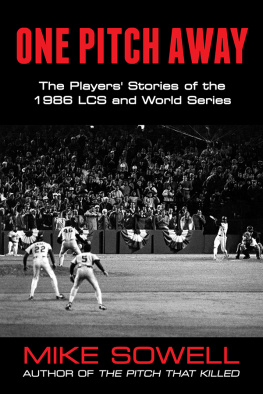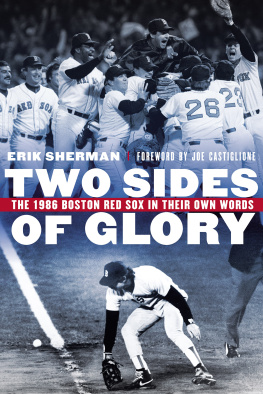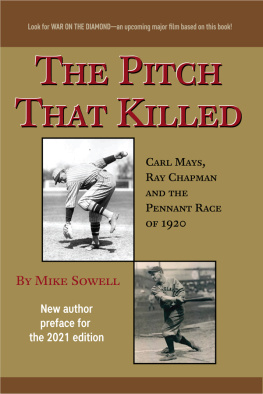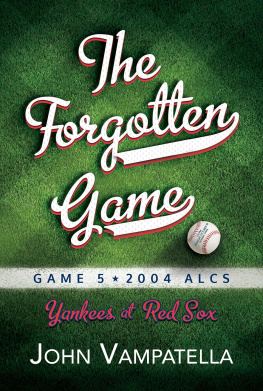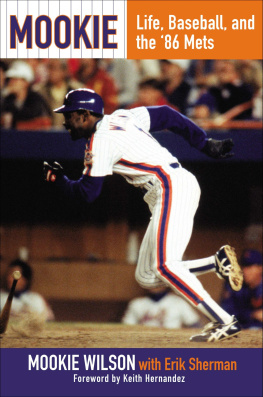
ONE PITCH AWAY
About the Author
Mike Sowell is former sports writer and the author of three baseball books, two of which were named New York Times Notable Books of the Year. He grew up in Houston, where he followed the Houston Colt .45s/Astros and attended the first league game played in the Astrodome on Opening Day 1965.
After graduating from the University of Oklahoma, Sowell served two years in the U.S. Army, where he was sports editor and then editor of the Berlin Observer, a community newspaper. Sowell was a newspaper sports writer in Texas before joining the Tulsa Tribune, where he was an award-winning sports columnist and sports editor before the papers demise in 1992.
His first book, The Pitch That Killed, was published in 1989 and was the winner of the CASEY Award for best baseball book of the year as well as a New York Times Notable Book of the Year. July 2, 1903: The Mysterious Death of Hall-of-Famer Big Ed Delahanty was published in 1992, and One Pitch Away, also a New York Times Notable Book of the Year, in 1995.
Sowell also was the writer for Cardtoons, a series of baseball parody cards that poked fun at the greed and temperamental behavior of the players and owners in Major League Baseball. The cards were scheduled to be released in 1994, but instead became the focus of a lawsuit against the Major League Baseball Players Association, which attempted to block their publication. Cardtoons eventually won the case based on its First Amendment right to parody. The cards were released in 1996, with Cardtoons v. The MLBPA becoming a significant media law case, still featured in several legal books and publications.
Sowell later received a masters degree from Oklahoma State University and spent 15 years on the faculty at the universitys School of Journalism & Broad-casting, later the School of Media & Strategic Communications. He was inducted into the Oklahoma Journalism Hall of Fame in 2007. He now is retired and lives in Tulsa, Oklahoma, with his wife, Ellen, and his dog, Chappie.
ONE PITCH AWAY
The Players Stories of the 1986
LCS and World Series
Mike Sowell

Copyright 1995 by Mike Sowell
First Summer Game Books edition 2016
Published by Summer Game Books at Smashword
All rights reserved.
No part of this publication may be reproduced, stored in a retrieval system, or transmitted in any form by any process electronic, mechanical, photocopying, recording, or otherwise without prior written permission from the copyright owner and the publisher. The replication, uploading, and distribution of this book via the internet or any other means without the permission of the publisher, is illegal.
ISBN: 978-1-938545-73-3 (pbk.)
ISBN: 978-1-938545-74-0 (ebk.)
Originally published by Macmillan, a Simon & Schuster Macmillan Company
For information about bulk purchases or additional distribution, write to Summer Game Books
P. O. Box 818
South Orange, NJ 07079
or contact the publisher at
www.summergamebooks.com
In memory of my mother, Lee Sowell, the first writer in our family and the source
of my strength.
I am grateful to Walt Friedman and Summer Game Books for giving new life to One Pitch Away, both in print and e-book form, and also to its predecessor The Pitch That Killed. It has been more than 20 years since One Pitch Away initially was printed, but the drama and heartbreak that occurred in those three 1986 postseason series remains unrivaled.
No matter how much time passes, I believe the stories of Bill Buckner, Donnie Moore and the others profiled in this book always will remain an important part of baseballs history and a reminder of how the game affects the lives of those involved in those special moments, for good and bad.
As before, I owe a special debt of gratitude to Rick Wolff, who conceived the idea of this book and encouraged me to carry through with it. I also want to thank Traci Cothran, my editor at Macmillan, who did an outstanding job after being called on in relief in the middle of the game and helping to see One Pitch Away to its initial publication in 1995.
Special thanks also go to Ted Bakamjian, loyal Red Sox fan, for the use of his video library of the 1986 postseason games; Doug Roberts for his many trips to the National Baseball Hall of Fame Library; Rob Neyer, who assisted with much of the research; John Hinds, my old army buddy from Berlin, who provided timely help in tracking down players; Ted Rodgers for the many clippings he provided; Harry Shattuck, former colleague and mentor at the Houston Chronicle, who was generous with his time and knowledge; Johnny McGraw for seeing the project through to its completion; and good friends Robin and Steve Schoenfeld for their hospitality on my travels through Arizona.
Also Dave Sittler, Barry Lewis, Art Richman, Zack Cooper, Dave Cataneo, Marty York, Barry Bloom, Bill Reynolds, Kathy Cooper, Andy Furman and fellow Sports AnswerMan Wayne McCombs for their assistance.
Numerous players and baseball people also were generous with their time, and I especially want to thank Alan Ashby, Wade Boggs, Bob Boone, Bill Buckner, Gary Carter, Stewart Cliburn, Doug Corbett, Glenn Davis, Doug DeCinces, Rich Gedman, Billy Hatcher, Dave Henderson, Bob Knepper, Ray Knight, Tonya Moore, Vern Ruhle, Calvin Schiraldi, Mike Scott, Bob Stanley, Dave Stapleton, Mookie Wilson and Mike Witt.
And always, to Ellen, my partner on the journey.
I understand. Ive been there lots of times lots of games lots of places
GENE MAUCH
T he game took place in 1982, but it could have been 1962, or 1972, or any of the twenty-six seasons Gene Mauch managed a major-league baseball team.
It was the ninth inning, and things were not going well for his California Angels. There were runners on base, and his pitcher was struggling to put down this late rally by the opposition.
Reggie Jackson was stationed next to Mauch in the dugout. Jackson had seen this before, and he was worried. The powerful California hitters would build up a big lead, only to see their efforts wasted by the teams erratic relief pitching.
Again? Jackson whispered to Mauch.
Mauch said nothing but raised his hand in a reassuring gesture, as if to say, Dont worry, everything will be all right.
Sure enough, the California pitcher settled down to retire the side, and the Angels escaped with another hard-earned victory.
Afterward, Jackson called out to his manager.
Hey, Gene, howd you know wed get out of that?
Mauch smiled knowingly.
Listen, he said, when you want something bad enough and you try hard enough, youve got a pretty good chance of getting it.
At least, that was the way it was supposed to work.
F our years later, on a Friday afternoon late in the 1986 season, Gene Mauch sat in the dugout filling out a lineup card. He still hadnt gotten what he wanted, but he still was trying.
And on this day, September 26, 1986, he had a chance to get a step closer to his lifelong goal.
Mauch was sixty years old, and his well-tanned face and silver hair gave him a regal appearance. He still had the military bearing that had earned him the nickname the Little General, and like an army commander, he spent many hours each day in preparation for the upcoming confrontation.
Even a routine task such as choosing a lineup was handled with the same care and planning as devising a battle plan. Who would bat lead-off that night against the Texas Rangers? Already that season, Mauch had used nine different players in this spot. Which of his three second basemen should he play? Who would play right field? Who would be the designated hitter? All managers faced these decisions, but no one analyzed them more closely than did Mauch.
Next page
